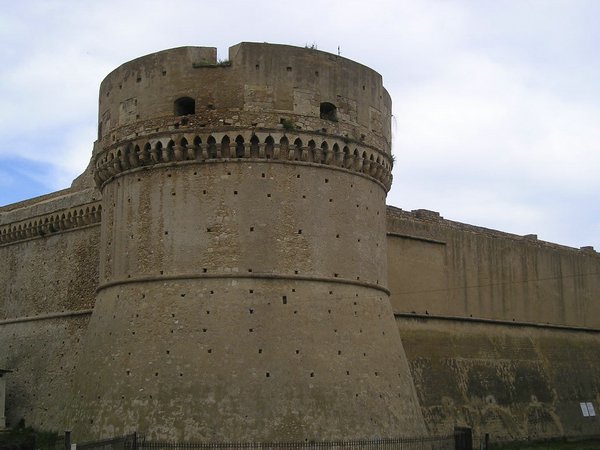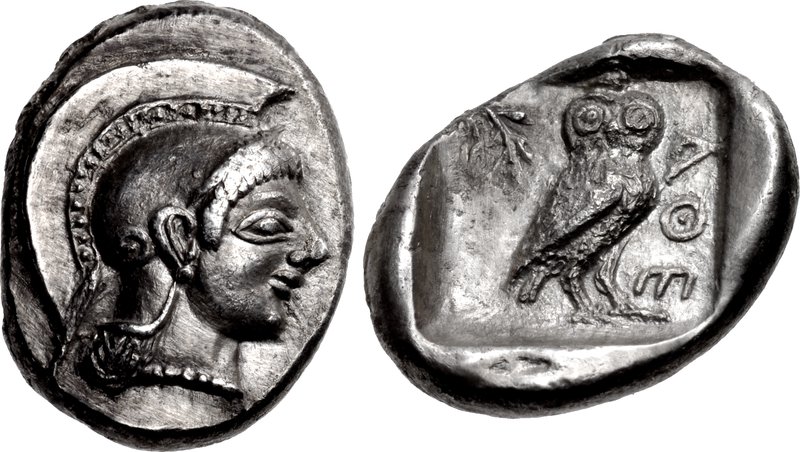|
509–500 BC
{{Decadebox BC, 50 Events and trends * 509 BC—Overthrow of Roman monarchy, and beginning of Republican period. First pair of consuls elected. Tarquinian conspiracy formed, but discovered and the conspirators executed. Forces of Veii and Tarquinii, led by the deposed king Lucius Tarquinius Superbus defeated in the Battle of Silva Arsia by the Roman army. Consul Publius Valerius Publicola celebrates the first republican triumph on 1 March. * September 13, 509 BC—The Temple of Jupiter Optimus Maximus on Rome's Capitoline Hill is dedicated on the ides of September. * 508 BC— War between Rome and Clusium * 508 BC—War between Clusium and Aricia * 508 BC—Office of '' Pontifex Maximus'' created in Rome. * 508 BC—Cleisthenes reorganizes Athens. He creates the deme, a local unit to serve as the basis of his political system. Citizenship is tightly linked to the deme, for each deme keeps the roll of those within its jurisdiction, who are admitted to citizenship. He groups all ... [...More Info...] [...Related Items...] OR: [Wikipedia] [Google] [Baidu] |
Capitoline Hill
The Capitolium or Capitoline Hill ( ; it, Campidoglio ; la, Mons Capitolinus ), between the Forum and the Campus Martius, is one of the Seven Hills of Rome. The hill was earlier known as ''Mons Saturnius'', dedicated to the god Saturn. The word ''Capitolium'' first meant the temple of Jupiter Optimus Maximus later built here, and afterwards it was used for the whole hill (and even other temples of Jupiter on other hills), thus ''Mons Capitolinus'' (the adjective noun of ''Capitolium''). In an etymological myth, ancient sources connect the name to ''caput'' ("head", "summit") and the tale was that, when laying the foundations for the temple, the head of a man was found, some sources even saying it was the head of some ''Tolus'' or ''Olus''. The ''Capitolium'' was regarded by the Romans as indestructible, and was adopted as a symbol of eternity. By the 16th century, ''Capitolinus'' had become ''Capitolino'' in Italian, and ''Capitolium'' ''Campidoglio''. The Capitoline Hill ... [...More Info...] [...Related Items...] OR: [Wikipedia] [Google] [Baidu] |
507 BC
__NOTOC__ The year 507 BC was a year of the pre-Julian Roman calendar. In the Roman Empire it was known as the Year of the Consulship of Poplicola and Pulvillus (or, less frequently, year 247 '' Ab urbe condita''). The denomination 507 BC for this year has been used since the early medieval period, when the Anno Domini calendar era became the prevalent method in Europe for naming years. Events By place Greece * Cleisthenes takes power in the city-state of Athens and institutes reforms that lead historians to consider him the father of democracy. Births * Lu Ban, Chinese inventor and philosopher (d. 440 BC) Deaths * Sudharmaswami, Indian religious leader (b. 607 BC The year 607 BC was a year of the pre-Julian Roman calendar. In the Roman Empire, it was known as year 147 ''Ab urbe condita''. The denomination 607 BC for this year has been used since the early medieval period, when the Anno Domini calendar er ...) References {{BC-year-stub ... [...More Info...] [...Related Items...] OR: [Wikipedia] [Google] [Baidu] |
Eusebius Of Caesarea
Eusebius of Caesarea (; grc-gre, Εὐσέβιος ; 260/265 – 30 May 339), also known as Eusebius Pamphilus (from the grc-gre, Εὐσέβιος τοῦ Παμφίλου), was a Greek historian of Christianity, exegete, and Christian polemicist. In about AD 314 he became the bishop of Caesarea Maritima in the Roman province of Syria Palaestina. Together with Pamphilus, he was a scholar of the biblical canon and is regarded as one of the most learned Christians during late antiquity. He wrote ''Demonstrations of the Gospel'', '' Preparations for the Gospel'' and ''On Discrepancies between the Gospels'', studies of the biblical text. As "Father of Church History" (not to be confused with the title of Church Father), he produced the ''Ecclesiastical History'', ''On the Life of Pamphilus'', the ''Chronicle'' and ''On the Martyrs''. He also produced a biographical work on Constantine the Great, the first Christian Roman emperor, who was ''augustus'' between AD 306 an ... [...More Info...] [...Related Items...] OR: [Wikipedia] [Google] [Baidu] |
Ancient Olympic Games
The ancient Olympic Games (Ὀλυμπιακοὶ ἀγῶνες; la, Olympia, neuter plural: "the Olympics") were a series of athletic competitions among representatives of city-states and were one of the Panhellenic Games of Ancient Greece. They were held in honor of Zeus, and the Greeks gave them a mythological origin. The originating Olympic Games are traditionally dated to 776 BC. The games were held every four years, or Olympiad, which became a unit of time in historical chronologies. They continued to be celebrated when Greece came under Roman rule, 2nd century BC. Their last recorded celebration was in AD 393, under the emperor Theodosius I, but archeological evidence indicates that some games were still held after this date.Hamlet, Ingomar. "Theodosius I. And The Olympic Games". Nikephoros 17 (2004): pp. 53-75. The games likely came to an end under Theodosius II, possibly in connection with a fire that burned down the temple of the Olympian Zeus during his reign. D ... [...More Info...] [...Related Items...] OR: [Wikipedia] [Google] [Baidu] |
Stadion Race
''Stadion'' or ''stade'' ( grc, στάδιον) was an ancient running event, part of the Ancient Olympic Games and the other Panhellenic Games. It was one of the five major Pentathlon events. It was the premier event of the ''gymnikos agon'' (γυμνικὸς ἀγών "nude competition"). History From the years 776 to 724 BC, the ''stadion'' was the only event that took place at the Olympic Games. The victor gave his name to the entire four-year Olympiad, which has allowed scholars to know the names of nearly every ancient Olympic stadion winner. The ''stadion'' was named after the building in which it took place, also called the ''stadion''. This word became ''stadium'' in Latin, which became the English word stadium. The race also gave its name to the unit of length, the stadion. There were other types of running events, but the ''stadion'' was the most prestigious; the winner was often considered to be the winner of an entire Games. Though a separate event, the ''sta ... [...More Info...] [...Related Items...] OR: [Wikipedia] [Google] [Baidu] |
Crotone
Crotone (, ; nap, label= Crotonese, Cutrone or ) is a city and ''comune'' in Calabria, Italy. Founded as the Achaean colony of Kroton ( grc, Κρότων or ; la, Crotona) in Magna Graecia, it was known as Cotrone from the Middle Ages until 1928, when its name was changed to the current one. In 1992, it became the capital of the newly established Province of Crotone. , its population was about 65,000. History Croton's ''oikistes'' (founder) was Myscellus, who came from the city of Rhypes in Achaea in the northern Peloponnese. He established the city in c. 710 BC and it soon became one of the most flourishing cities of Magna Graecia with a population between 50,000 and 80,000 around 500 BC. Its inhabitants were famous for their physical strength and for the simple sobriety of their lives. From 588 BC onwards, Croton produced many generations of winners in the Olympics and the other Panhellenic Games, the most famous of whom was Milo of Croton. According to Herodotus (3.131), ... [...More Info...] [...Related Items...] OR: [Wikipedia] [Google] [Baidu] |
Deme
In Ancient Greece, a deme or ( grc, δῆμος, plural: demoi, δημοι) was a suburb or a subdivision of Athens and other city-states. Demes as simple subdivisions of land in the countryside seem to have existed in the 6th century BC and earlier, but did not acquire particular significance until the reforms of Cleisthenes in 508 BC. In those reforms, enrollment in the citizen-lists of a deme became the requirement for citizenship; prior to that time, citizenship had been based on membership in a phratry, or family group. At this same time, demes were established in the main city of Athens itself, where they had not previously existed; in all, at the end of Cleisthenes' reforms, Athens was divided into 139 demes, to which one can be added Berenikidai (established in 224/223 BC), Apollonieis (201/200 BC), and Antinoeis (added in 126/127). The establishment of demes as the fundamental units of the state weakened the ''gene'', or aristocratic family groups, that had dominated t ... [...More Info...] [...Related Items...] OR: [Wikipedia] [Google] [Baidu] |
Athens
Athens ( ; el, Αθήνα, Athína ; grc, Ἀθῆναι, Athênai (pl.) ) is both the capital and largest city of Greece. With a population close to four million, it is also the seventh largest city in the European Union. Athens dominates and is the capital of the Attica region and is one of the world's oldest cities, with its recorded history spanning over 3,400 years and its earliest human presence beginning somewhere between the 11th and 7th millennia BC. Classical Athens was a powerful city-state. It was a centre for the arts, learning and philosophy, and the home of Plato's Academy and Aristotle's Lyceum. It is widely referred to as the cradle of Western civilization and the birthplace of democracy, largely because of its cultural and political influence on the European continent—particularly Ancient Rome. In modern times, Athens is a large cosmopolitan metropolis and central to economic, financial, industrial, maritime, political and cultural life in Gre ... [...More Info...] [...Related Items...] OR: [Wikipedia] [Google] [Baidu] |
Cleisthenes
Cleisthenes ( ; grc-gre, Κλεισθένης), or Clisthenes (c. 570c. 508 BC), was an ancient Athenian lawgiver credited with reforming the constitution of ancient Athens and setting it on a democratic footing in 508 BC. For these accomplishments, historians refer to him as "the father of Athenian democracy." He was a member of the aristocratic Alcmaeonid clan. He was the younger son of Megacles and Agariste making him the maternal grandson of the tyrant Cleisthenes of Sicyon. He was also credited with increasing the power of the Athenian citizens' assembly and for reducing the power of the nobility over Athenian politics. In 510 BC, Spartan troops helped the Athenians overthrow the tyrant Hippias, son of Peisistratus. Cleomenes I, king of Sparta, put in place a pro-Spartan oligarchy headed by Isagoras. But his rival Cleisthenes, with the support of the middle class and aided by democrats, took over. Cleomenes intervened in 508 and 506 BC, but could not stop Cleisthenes and ... [...More Info...] [...Related Items...] OR: [Wikipedia] [Google] [Baidu] |
War Between Clusium And Aricia
The war between Clusium and Aricia was a military conflict in central Italy that took place around 508 BC. Lars Porsena was king of Clusium, at that time reputed to be one of the most powerful cities in Etruria. At the behest of the exiled king of Rome, Lucius Tarquinius Superbus, Porsena had waged war against Rome. A siege of Rome ended with a peace treaty between the two cities and Porsena departed from Rome.Livy, ''Ab urbe condita'', 2.9-14 Porsena then split his forces, and sent part of the Clusian army with his son Aruns to besiege the Latin city of Aricia. According to Livy, Porsena did this so that his military expedition might not appear to have been fruitless.Livy, ''Ab urbe condita'', 2.14 The Aricians sent for assistance from the Latin League, and also from the Greek city of Cumae. When support arrived, the Arician army ventured beyond the walls of the city and the combined armies met the Clusian forces in battle. According to Livy, the Clusians initially routed ... [...More Info...] [...Related Items...] OR: [Wikipedia] [Google] [Baidu] |







